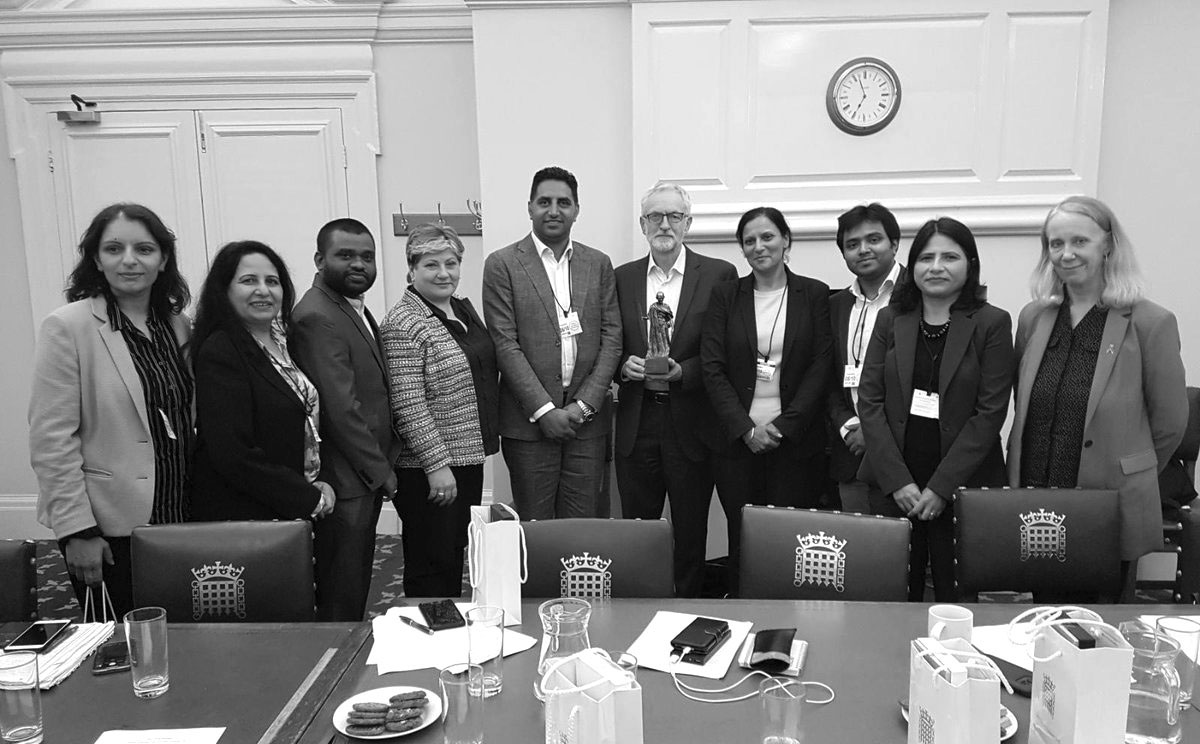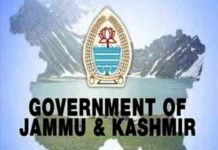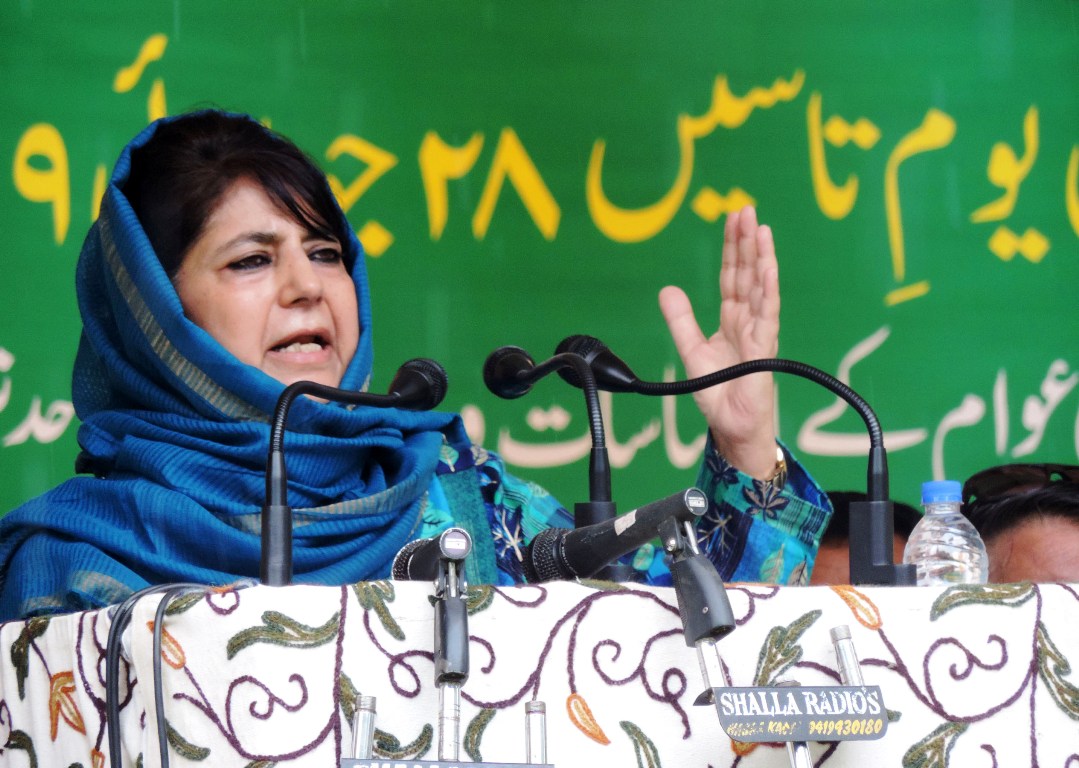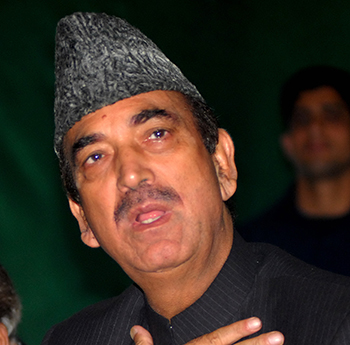by Saima Bhat
SRINAGAR: United Kingdom’s Labour leader Keir Starmer has denied any change in the party’s position on Jammu and Kashmir after his recent remarks seeking to rebuild trust with India and the Indian diaspora in the UK sparked a welter of protest from party MPs and members with origins and links to Pakistan, Hindustan Times has reported.

As reported, Starmer wrote to the Muslim Council of Britain (MCB), which sought a clarification from him: “Our position on Kashmir has not changed, we support and recognise previous UN resolutions on the rights of the Kashmiri people but maintain that if we are to find a lasting settlement, to end this conflict, that can only be achieved if India and Pakistan working together, with the people of Kashmir.”
Starmer’s remarks to the Labour Friends of India (LFIN) on March 30 were seen as ‘repositioning’ the party’s position on the dispute since they sought to distance the party from that under the previous leader, Jeremy Corbyn, which was seen as ‘anti-India’.
Last week, Starmer met party MPs and others, particularly those of Pakistan origin, who protested against his view that the dispute was a matter for India and Pakistan to resolve and that he intended to focus on building “even stronger business links with India”.
The Pakistani community in the UK has largely stood by Labour even as large sections of the Indian community have gravitated towards the Conservatives in recent elections. Starmer’s perceived ‘pro-India’ remarks drew sharp criticism inside and outside the party.
A lawyer with a background in human rights litigation, Starmer added in the letter to MCB: “As I outlined in my leadership campaign, my approach to international relations will be to always promote peace and put human rights first.”
“I will also ensure that (shadow foreign secretary) Lisa Nandy follows up on this correspondence and reached out to you to discuss how we can ensure the voices of our Kashmiri communities contribute to Labour’s policy-making processes,” he added.
The Resolution
In its yearly conference at Brighton, the Labour Party passed a resolution on September 25, 2019, supporting international intervention on Kashmir and a call for UN-led referendum. Apart from condemning the revocation of state’s special status, the resolution asked the party to support Kashmir’s right of self-determination, call for sending international observers and intervene at the United Nations Human Rights Council.

The stand of the Jeremy Corbyn led party was in sharp contrast to the Conservative Party government that said the issue is bilateral between India and Pakistan. Earlier, Corbyn had tweeted about the state of human rights in Kashmir on August 11, and many of his party leaders participated in anti-India protests on August 15.
The Kashmir resolution was moved by party leaders representing Blackburn, Dudley North, Keighley, Stockport and Wakefield CLPs. British-Pakistani leader Uzma Rasool initiated it and Labour MP Naz Shah seconded it.
Delhi reacted quickly. Indian High Commission in London cancelled the yearly reception with the party leaders. “Government has noted certain developments at the Labour Party Conference on September 25, pertaining to the Indian State of Jammu & Kashmir,” MEA spokesman Raveesh Kumar said. “We regret the uninformed and unfounded positions taken at this event. Clearly, this is an attempt at pandering to vote-bank interests. There is no question of engaging with the Labour Party or its representatives on this issue.”
Indian Diaspora Reacts
Labour Party’s prominent members of Indian-origin started a follow-up quickly. Labour Friends of India (LFIN) sent a letter to Corbyn and shadow Home Secretary Emily Thornberry protesting against the procedure followed in the passage of the emergency motion. The letter asserted that abrogation of Article 370 was an internal matter of India. “Issues of sovereignty are a matter for the Indian government; border issues are matters for the governments of India and Pakistan,” Indian- origin MP Keith Vaz, who is facing a half year suspension for disregarding the law, said in the letter.
Other Labour MPs including Virendra Sharma and Barry Gardiner also expressed, “disappointment” over the resolution.
Initially, the Labour Party strongly refused to recall the resolution and insisted it was in the democratic spirit of the party. Corbyn defended the resolution personally. “The emergency motion on Kashmir came through as part of the democratic process of the Labour party conference,” Corbyn wrote in response to the complaining MPs. “However, there is a recognition that some of the language used within it could be misinterpreted as hostile to India and the Indian Diaspora. Labour understands the concerns the Indian community in Britain has about the situation in Kashmir and takes these concerns very seriously. The Labour Party is committed to ensuring the human rights of all citizens of Kashmir are respected and upheld. This remains our priority and I agree that we should not allow the politics of the sub-continent to divide communities here in Britain.”
But the Indian diaspora did not stop reacting. Almost 100 British-Indian outfits had assembled in one Twitter handled with the sole aim to undo the resolution. The most recent was the “do not vote Labour” campaign launched by Kuldeep Singh Shekhawat, who heads the Overseas Friends of BJP. The fierce campaign has started dividing the Hindu Britons as there are reports in British media that some of the Conservative politicians are encouraging the campaign. At least two Hindu groups have decided not to invite Labour leaders thus preventing them from explaining themselves.
Indian diaspora says it holds million-odd votes. Reports appearing in British media suggest the Tories (Conservatives) are traditionally getting better vote share from ethnic Indians – 30 per cent in 2010 and 40 per cent in 2017. Balance 60 per cent votes have traditionally been going to the Labour Party.















